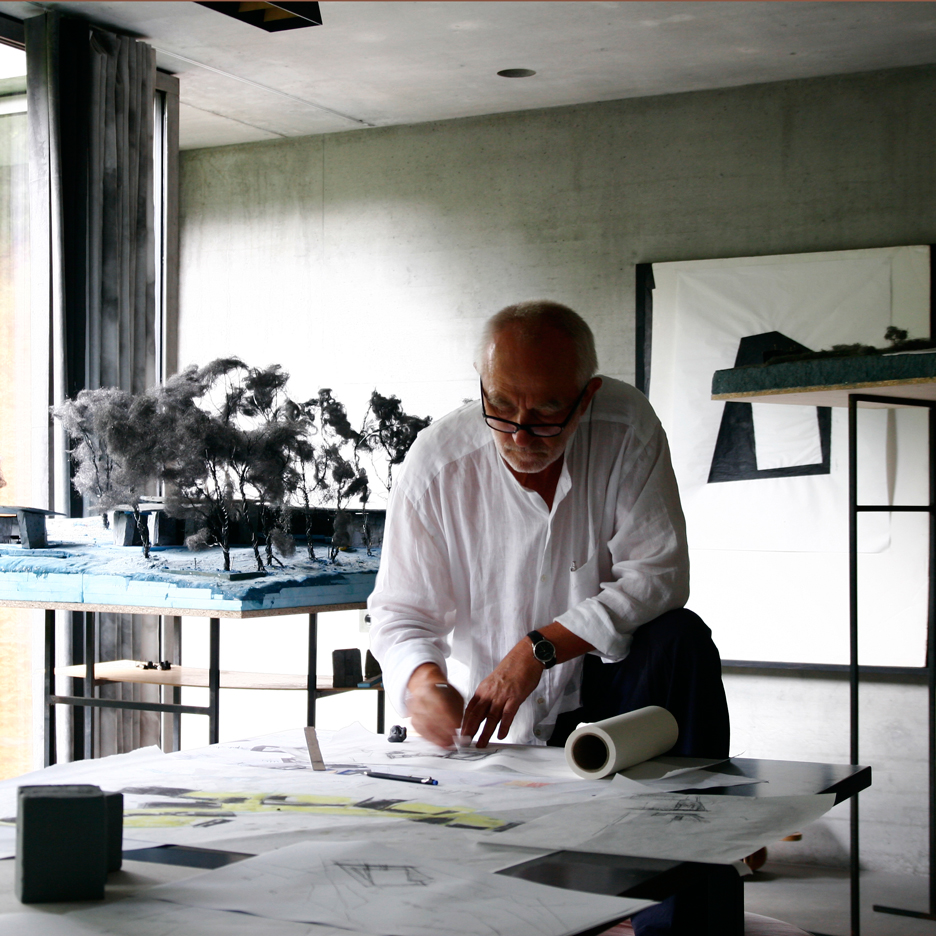
"Peter Zumthor is wrong. The future of architecture isn't handmade"
Comments update: Swiss architect Peter Zumthor divided opinion this week with his claims that handmade architecture is experiencing a resurgence, and that computers are simply slaves. Read on for more about this and explore our comments page to keep up with the latest discussions.
Craftwork: speaking to Dezeen at the Venice Architecture Biennale, Zumthor said it was a myth that traditional forms of construction are being replaced by digital processes. His view wasn't shared by everybody.
"Zumthor practices in a country where build quality is guaranteed," said a guest commenter championing digital processes such as 3D printing and robotic fabrication, "but for anywhere other than Switzerland and Japan the future is modular."
But Zumthor's supporters claimed digital construction processes could have a serious and harmful impact on society.
"Can you provide an alternative job for the millions of construction workers that will lose their means of sustenance when 'progression' takes its place?" asked a commenter calling themselves guisforyou. "All ecologies have their essential parts. Once you destroy a cycle, chaos and death are usually the end product."
"There are few industries where jobs are not lost, or at least 'shifted', because of technology," replied Derek Elliot. "It's a difficult question to answer but the answer is definitely not to attempt to combat or slow the progression of technology." Let us know what you think in the comments section »

Naked kitchen: MVRDV unveiled a see-through kitchen that aims to inspire a "more healthy, if not sexy" approach to food production in Venice last week, leaving some readers confused but many more in awe.
"Trying to make a connection between transparency, healthier food choices and preparation is a bit farfetched," said one commenter. "And as for inspiring a sexy approach to food, it is just ludicrous."
"The fact the kitchen is made of glass will force you to keep it clean in the same way the great acoustics in a church will force you to keep your voice down," hit back HJ. "If every speck of dirt is visible, you'll be sure to wipe your workstation properly." Read the comments on this story »

Zen at work: how would you react if your boss forced you to meditate during the working day? Commenters discussed this after Vietnamese architect Vo Trong Nghia revealed he makes his staff meditate to help them "resist cravings and improve concentration".
"Meditation shouldn't be compulsory," wrote regular contributor Jay, while others questioned whether his staff were being paid for their attempts to find inner peace.
"Why is required meditation 'tyrannical', but required dress codes, job tasks, meetings, office hours, physical location, desks and computers, ways of working, social events – all parts of a typical working culture – not?" replied Brendan.
"Employment is not compulsory," added Chodron. "If the burden of working in a mindful environment that allows time to be set aside for the benefit of focus-orientated meditation is too much for someone, remember they did not have to accept employment." Read the comments on this story »

Is it design? Design thinking is increasingly being taken up by business strategists to tackle a variety of issues outside of design itself. But should designers be flattered or worried? Dezeen columnist Lucas Verweij sparked a lively debate when he asked just this in his latest Opinion column.
"The main problem is that design thinking equates the designer's mind with a process, when it is an acquired knowledge, a culture," said Marc Sicard. "Reading people writing about design thinking is like being a professional swimmer and looking at people lying on the floor, imitating your movement and pretending to swim just as you."
"Designers do not like design thinking because many designers think of themselves as artists," countered a guest commenter.
"Design skills are attached to a particular branch or discipline of design," added Anthony Sully. "Design thinking is wafting away like somebody trying to get into a football match without a ticket." Read the comments on this story »